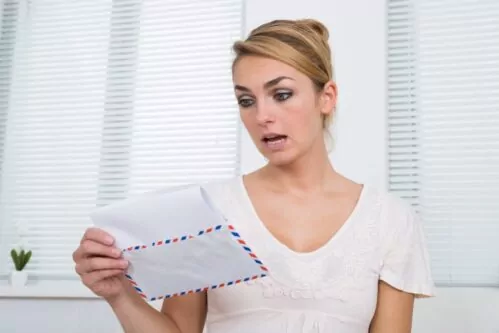Add Debt during Bankruptcy

What happens if you forgot to include a debt on your bankruptcy application? Perhaps you did not know you owed the money. Don’t panic. You can add debt like this as soon as you become aware of it.
Included in this article:
- Can you add forgotten debt to your bankruptcy?
- Adding a mortgage shortfall after bankruptcy
- What about debts borrowed after the start date?
- What if your creditors continue to chase you?
Rather speak to person? Give us a call (0800 044 3194) or click here to complete the form below and we’ll call you
What can you do if you forgot to include a debt on your application?
When you complete your bankruptcy application you will be asked to list all of your debts.
But what if you can’t remember exactly who you owe money to? Perhaps you have lost track because your accounts have been passed to debt collectors or sold on.
The fact is this does not matter. If you forget to list a debt or one comes to light after you are bankrupt it is automatically included (S382 of the Insolvency Act). Simply inform the Official Receiver and they will deal with it for you.
Want to get a list of the people you owe money to? Get a copy of your credit file. This should list many if not all of your outstanding accounts.
Can you add a mortgage or vehicle finance shortfall after you go Bankrupt?
If you go Bankrupt the unsecured debt that you were liable for on that date is included. In addition, any debt that you could become liable for at a later date is included.
This means that if a property or vehicle you own is repossessed after the date of your bankruptcy, any mortgage shortfall or vehicle finance shortfall will also be included. The only criteria is that the finance or mortgage agreement must have existed on the date you went bankrupt.
This rule applies as long as you have not changed the mortgage or finance agreement since the date you went bankrupt. If you did, the new agreement did not exist on the date you went bankrupt and a subsequent shortfall could not be added.
A mortgage or car finance shortfall is written off by your original bankruptcy even if the property or vehicle is repossessed after the date of your discharge.
What if you borrow more while you are Bankrupt?
While you are bankrupt it will be difficult for you to borrow more. This is because your credit rating will be poor. However you may still be able to get a cash loan from a Payday or Doorstep lender.
It is important to understand that any new money that you borrow after the date of your bankruptcy cannot then be included in the arrangement. You will remain personally liable to pay this. The creditor can take further legal action against you to enforce the debt if it is not paid.
If you are struggling financially while bankrupt you should speak to your Official Receiver. If you are paying an IPA it may be possible to suspend the payments. You should not try to borrow more money.
What if your creditors continue to chase you once you are Bankrupt?
Once you are bankrupt the Official Receiver will write to all the creditors you listed on your application. They should then stop their collection activities against you.
However if you forgot to list one, they will be unaware of your situation and may continue to chase you for money. If this happens you should inform the OR who is managing your case. They will then deal with the creditor on your behalf.
If a creditor demands money from you after you are bankrupt do not agree to pay them. Make sure they know you are bankrupt and give them the reference number. Then inform the official receiver about them.
Do not agree to pay payment to unsecured creditors yourself directly. This is not allowed. They can only receive payments via the OR from now on.